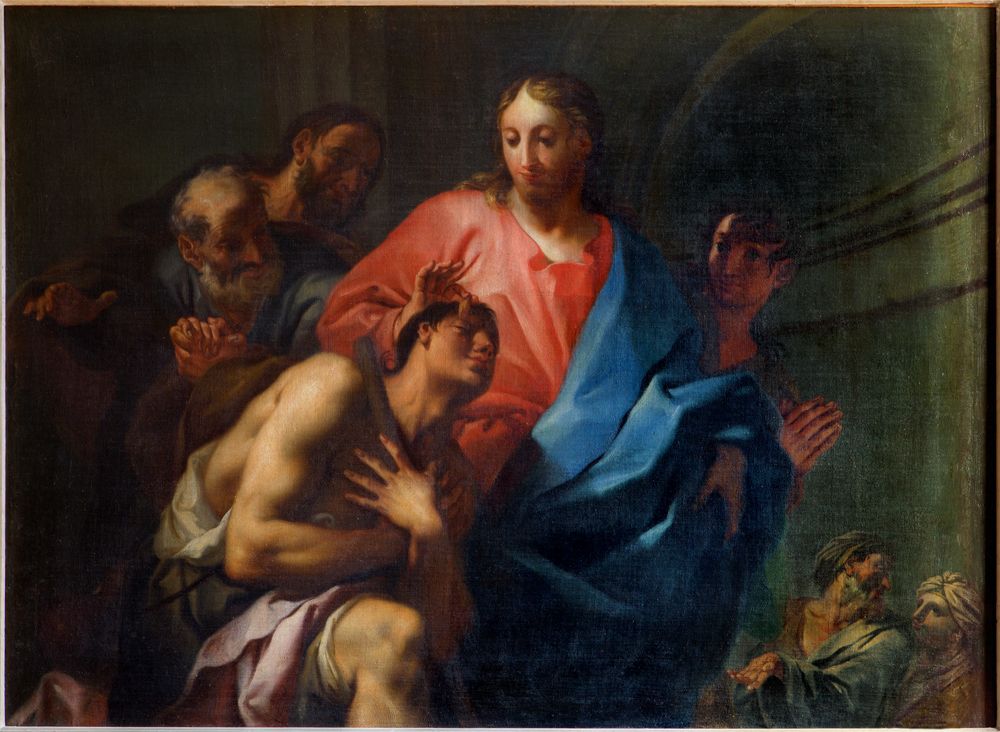Inclusion is a holy word
Commentary by Walter Hesford | FāVS News
“Building an Inclusive Community” was the proposed title for an event in April to be sponsored in part by Moscow’s Interfaith Association. A member of the association pointed out, however, that the word “inclusive” would immediately turn away many conservative church goers in our town where the culture wars wages on and on.
In Moscow, to be inclusive means especially to welcome LBGTQ+ folk. Some religious conservatives don’t want to even acknowledge such folk exist.
In our country as a whole, “inclusion” has become a dirty word, thanks to our president and others of his ilk. It is the third component of D.E.I. programs currently under attack. Inclusion is being blamed for everything from plane crashes to the weakening of our military.
Along with those who will not be defined by ideologically-constructed gender binaries, another group of people who suffer from the attack on inclusion are those with disabilities. In “How Department of Education Cuts Could Hurt Resources for Students with Disabilities,” we hear how already underfunded efforts to include such students will likely be further curtailed.
In 1975, Congress passed the Education for all Handicapped Children Act, which mandated all children have equal access to public education. Federal funding was supposed to help make this possible.
In the Newshour broadcast, we hear from an intelligent young fellow with Down’s syndrome and his mother that “equal” isn’t the reality. He has been grouped together with all other students with disabilities and just given busy work rather than an education — coloring books to color during a science class, for example.
This reminds me of how my cousin Rick, born with muscular dystrophy, was treated in the 50s and 60s. Though extremely bright (I was very upset when at age 9 he beat me at chess when I was 11), he was warehoused with other disabled kids and not given the opportunity for an education. Fortunately he had parents who hired tutors for him so as an adult he was able to earn a living as an accountant.
Other kids with muscular dystrophy were not so fortunate. As a volunteer in summer camps for these kids, I met teenagers who could not read or tell time. Their parents thought that since they will probably die young (and many do), why stress them out with an education they will never use.
Our society still often belittles and sidelines those with disabilities, not giving them the opportunity to be productive, to be included. This hurts not only them, but our whole society, as we lose what they have to offer.
Not to include those with disabilities also goes against the teachings of the gospels. It is remarkable how many of the healings of Jesus restore people to inclusion in their community.
Consider the man deemed unclean because of leprosy or some other skin disease and the woman deemed unclean because she continues to hemorrhage (Mark 1:40-45; 5:24-34). Jesus heals them, enabling them to participate once again in the life of their culture.

Consider the blind and the deaf. Jesus gives them sight and hearing, so that we have insight into how we should treat each other and hear the gospel with understanding (see, for example, Mark 7:31-37; 8:22-26).
Consider even those possessed by demons, driven mad, forced into isolation (Luke 8:26-39). Jesus drives out the demons, brings the mentally disturbed back into their lives, into our’s, into God’s fold. The kingdom of God, according to Jesus, is inclusive.
We might take as our model the four men who lower their paralytic friend down through the roof of a house so he can get close enough to Jesus to be healed (Mark 2:3-5). If we work together, we can include everyone, promoting the general welfare, as our Constitution mandates.
Our government should be funding rather than defunding programs that promote inclusion.
And we, who want to foster an inclusive community, should not shy away from advocating for inclusion.
It is not a dirty word. It is a holy word.
The views expressed in this opinion column are those of the author. They do not necessarily reflect the views of FāVS News. FāVS News values diverse perspectives and thoughtful analysis on matters of faith and spirituality.








It is strange times we live in — the ethical imperatives (justice, empathy, equality, peace, etc.) are weaponized as “toxic,” “sinful” or “evil” now? Thing is: bigotry always reveals the weak and ignorant.
I read a great book called Year of the Tiger by Alice Wong, who is a disability activists. She pointed out the nanny gifts folks from the disabled community have to offer our world. They tend to be highly creative problem-divers from having to manage daily in a world that was not built with them in mind. She and others like her are indeed as holy as the rest of us. Thanks for the reminder.
I love your point, Walter. Absolutely working together/acceptance offers ‘unison’; excluding a person or groups does nothing but create distrust and separation on both sides. You mention disabilities broadly… I appreciate that you did! Thank you. This also applies to those with mental health conditions who are trying to live a harmonious life with themselves and others around them. Holy should be seen as the default, period.